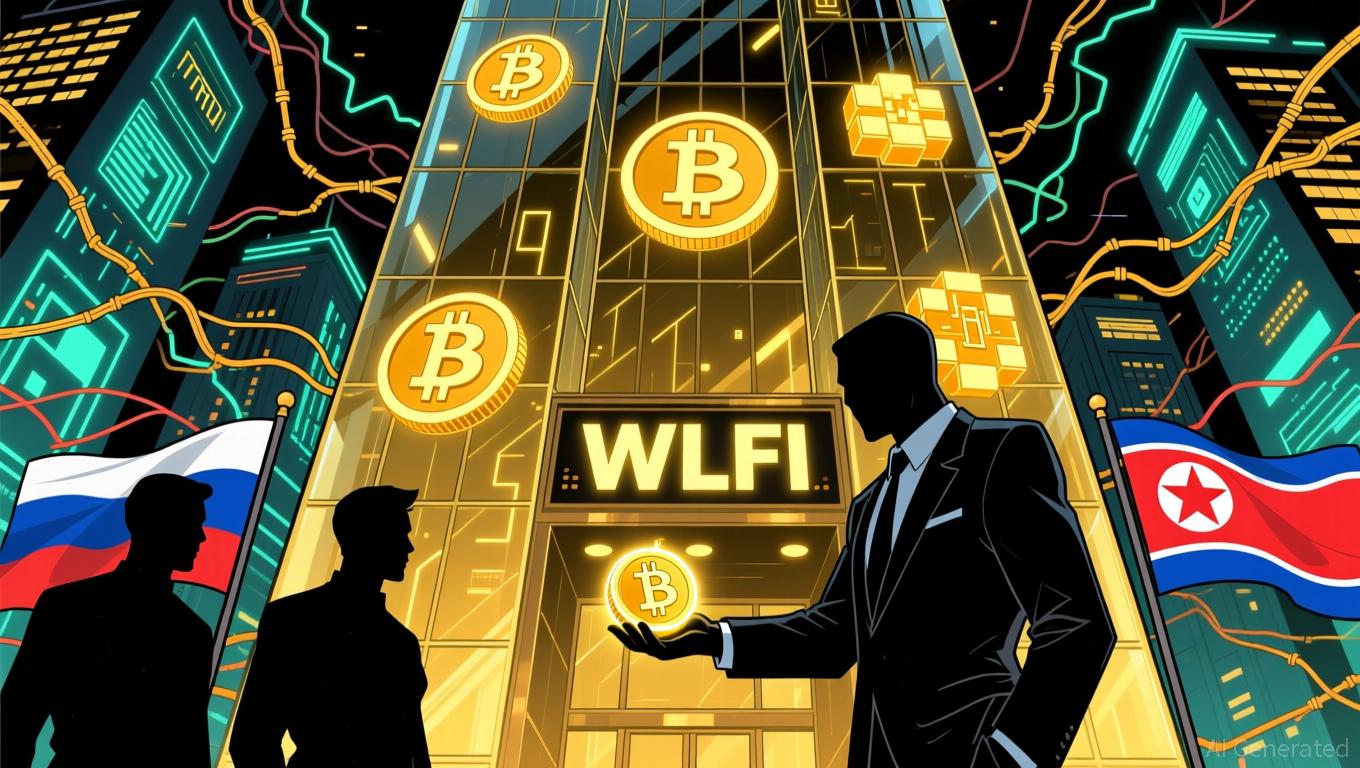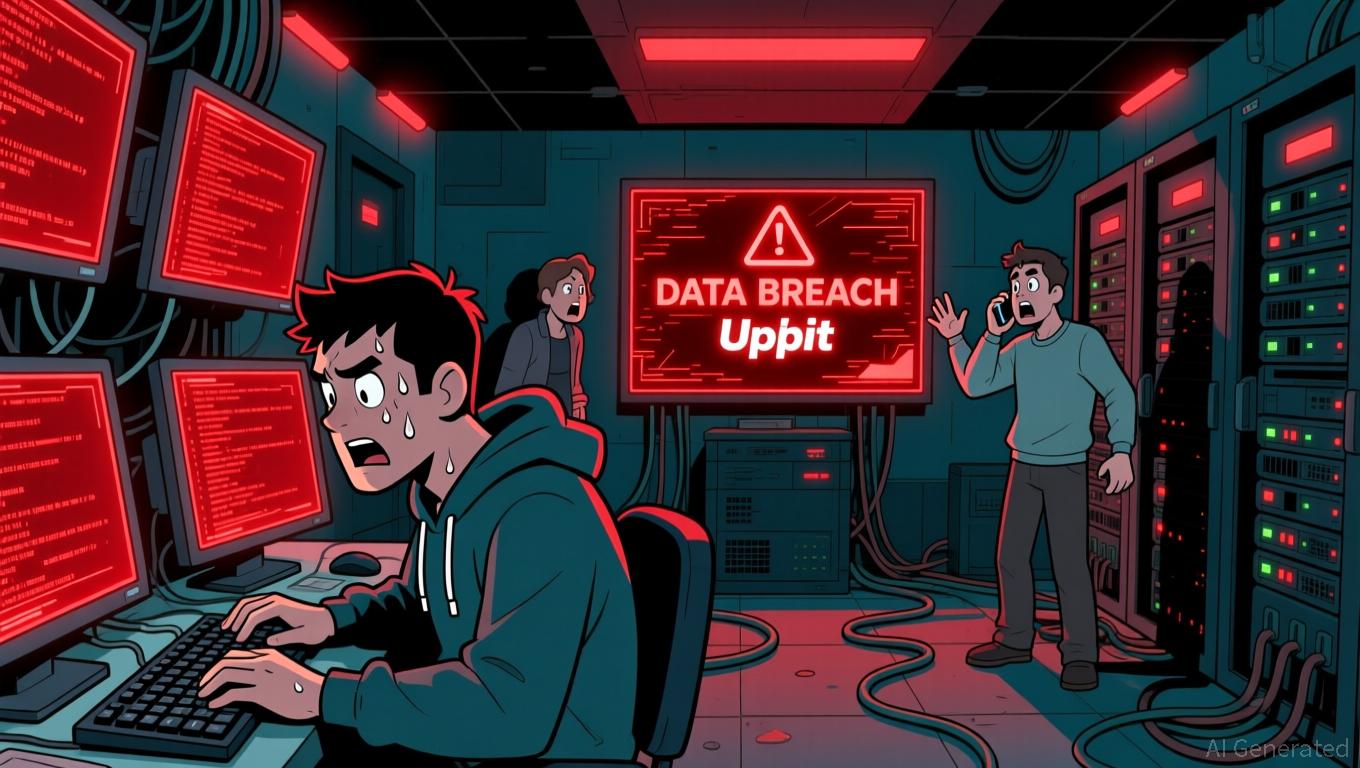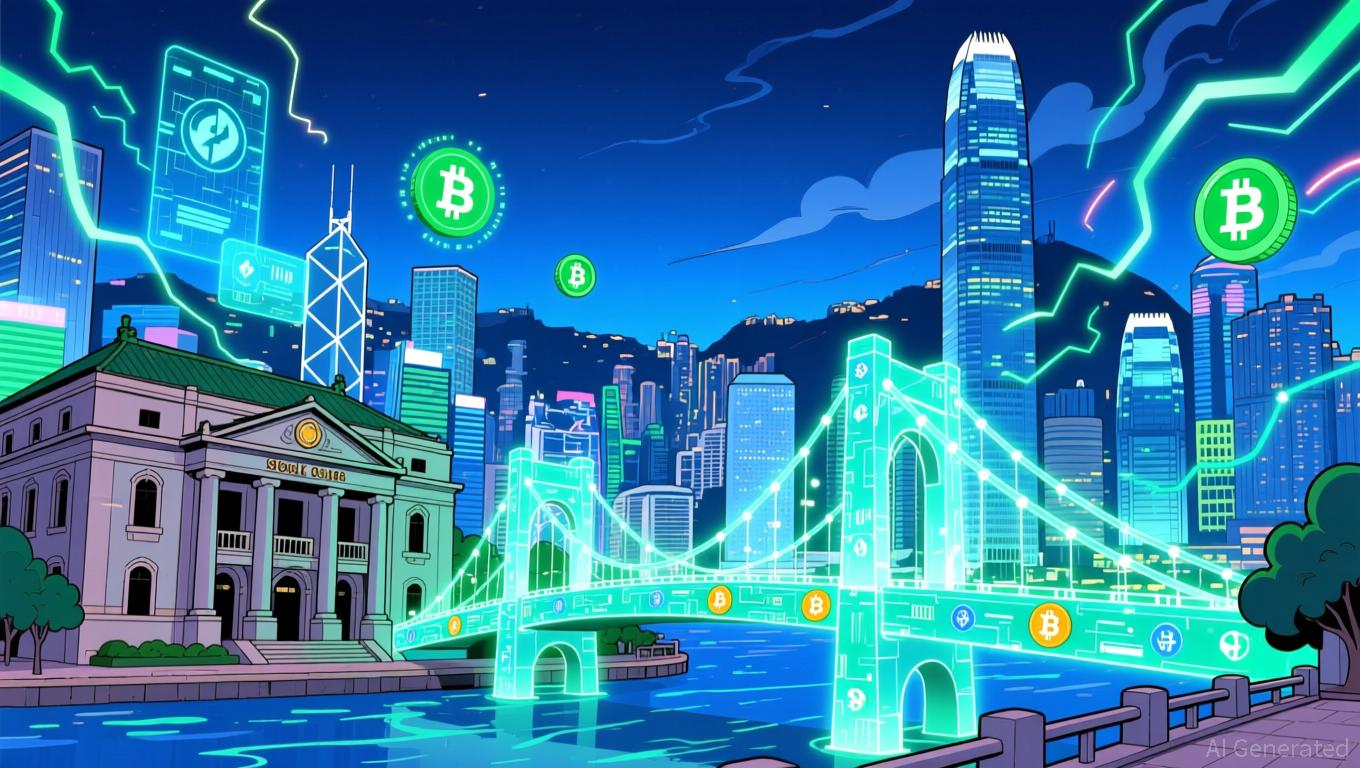XRP News Today: IMF Cautions That Rapid Tokenized Markets Could Intensify Crashes in the Absence of Regulation
- IMF warned tokenized markets like XRP could worsen flash crashes without regulation, citing risks from decentralized systems lacking traditional safeguards. - Report acknowledged tokenization's potential to cut cross-border payment costs but highlighted volatility risks from rapid liquidity loss seen in crypto markets. - SEC's approval of crypto ETFs signals growing institutional acceptance, though regulators emphasize oversight frameworks to mitigate systemic risks. - IMF proposed a global digital marke
IMF Raises Concerns Over Unregulated Tokenized Markets
The International Monetary Fund (IMF) has cautioned that while tokenized financial systems hold promise for improving cross-border payments, they could also intensify the risk of sudden market crashes if left without proper oversight. In its March 2023 report, "Fintech Note, Trust Bridges and Money Flows: A Digital Marketplace to Improve Cross-Border Payments," the IMF recognized the advantages of technologies such as XRP in making global transactions more efficient. However, the organization stressed that these innovations also introduce significant systemic risks.
According to the IMF, tokenized currencies like XRP can facilitate quicker and more affordable international transfers by eliminating the need for traditional credit-based arrangements. Yet, the lack of centralized regulation could make these markets more susceptible to extreme price fluctuations, especially during periods of instability.
Balancing Innovation and Financial Stability
The IMF's findings highlight a fundamental challenge in digital finance: fostering technological progress while maintaining market stability. Traditional cross-border payments depend on trusted relationships between banks, which often result in high fees and slow transactions. Tokenization offers a way to transfer ownership instantly on shared digital ledgers, but the IMF warns that these systems do not provide the same protections as established banking networks. For example, central bank swap lines—used to stabilize markets during crises—rely on political cooperation and trust, features that tokenized systems may not be able to replicate. This absence of safeguards could lead to more severe flash crashes, similar to those observed in cryptocurrency markets where liquidity can quickly disappear.

Regulatory Responses and Market Developments
Regulatory bodies are beginning to address these emerging risks. The U.S. Securities and Exchange Commission (SEC) has started approving or reviewing several exchange-traded funds (ETFs) linked to cryptocurrencies, signaling a gradual move toward mainstream acceptance. For instance, Grayscale Investments recently introduced the first U.S. spot Dogecoin (DOGE) ETF, though its initial trading volume was modest at $1.41 million. Meanwhile, applications for Chainlink (LINK) spot ETFs from Bitwise and Grayscale indicate that regulators are cautiously allowing tokenized assets into traditional markets, but with a strong emphasis on regulatory oversight. These actions reflect a broader effort to integrate digital assets into established financial systems while managing associated risks.
A Vision for a Global Digital Marketplace
To address these challenges, the IMF has proposed the creation of a global digital marketplace for tokenized money. This platform would enable assets like XRP to be exchanged internationally with greater efficiency, supported by market makers who would handle currency conversions and liquidity. The IMF does not endorse any specific token, instead presenting XRP, Stellar, and Bitcoin’s Lightning Network as examples of possible settlement mechanisms. This approach underscores the need for standardized governance and coordinated regulation to avoid fragmentation and systemic weaknesses.
Macroeconomic Influences and Future Outlook
Broader economic trends are also shaping the future of tokenized markets. For example, speculation about a potential interest rate cut by the Federal Reserve in December has already caused notable volatility in the cryptocurrency sector, with Bitcoin recovering after a sharp decline. These developments demonstrate how shifts in monetary policy can interact with digital asset markets, potentially amplifying risks if regulatory measures are insufficient. The IMF’s warning serves as a reminder that as governments and institutions become more involved with tokenized assets, the interplay between policy, market structure, and regulation will be crucial in ensuring the stability of next-generation payment systems.
Disclaimer: The content of this article solely reflects the author's opinion and does not represent the platform in any capacity. This article is not intended to serve as a reference for making investment decisions.
You may also like
Trump's cryptocurrency empire faces allegations of boosting political sway and posing security risks
- House Democrats accuse Trump's WLFI crypto firm of selling tokens to sanctioned entities like North Korea and Russia, calling it the "world's most corrupt crypto startup." - The firm's $1B in crypto profits and ties to the Trump brand raise national security concerns over political influence and illicit financial activity. - Eric Trump stepped back from WLFI operations in September amid regulatory scrutiny, highlighting conflicts of interest and insider trading risks. - The case underscores broader crypt

South Korea Revamps Cryptocurrency Regulations to Tackle Crime and Strengthen Digital Economy Leadership
- South Korea's Financial Intelligence Unit plans stricter AML measures, including pre-emptive account freezes, to combat crypto crimes by mid-2026. - A $30M Upbit hack linked to North Korea's Lazarus group highlights vulnerabilities, prompting enhanced exchange security protocols and loss coverage pledges. - Terra co-founder Do Kwon faces up to 40 years in South Korea for the $40B crypto crash, reflecting global accountability trends after FTX's collapse. - Regulators push for bank-led stablecoin issuance

Hong Kong’s SFC Approves Hang Feng’s Expansion into Virtual Assets
- Hang Feng's subsidiary HFIAM secured Hong Kong SFC approval to offer virtual asset advisory and management services, expanding its licensed scope to include digital assets. - The upgraded licenses enable HFIAM to manage portfolios with over 10% virtual asset exposure and launch standalone crypto funds, aligning with Hong Kong's innovation-focused regulatory framework. - This strategic move positions Hang Feng to capitalize on institutional demand for digital assets while emphasizing compliance, transpare

Opportunities in Webster, NY: Capitalizing on Infrastructure Funding and Redevelopment Prospects
- Webster , NY, leverages $9.8M FAST NY grants to upgrade infrastructure at a 300-acre brownfield, attracting advanced manufacturing and logistics firms like fairlife®. - Redevelopment of the former Xerox Wilson Campus aims to create 250 jobs by 2025, supported by $650M in reconfiguration and state-backed industrial expansion initiatives. - Parallel urban revitalization at 600 Ridge Road targets mixed-use development, boosting property values and tax revenues while addressing blighted properties in West We
